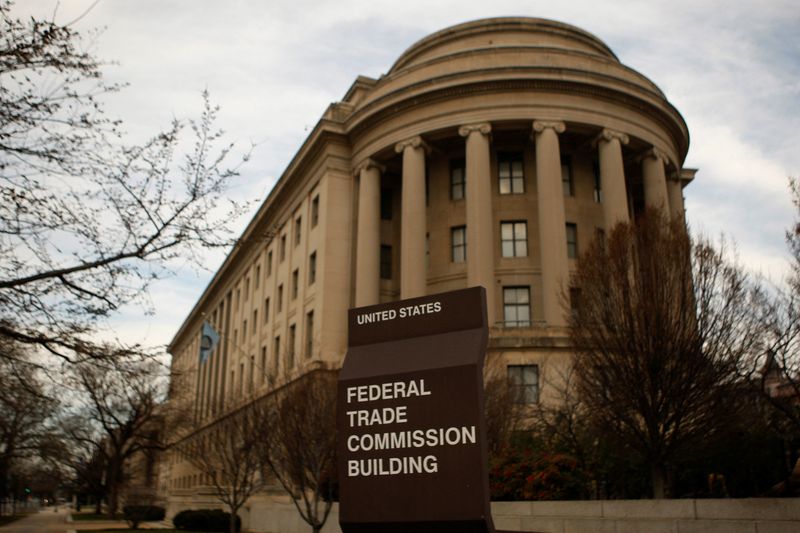By Jody Godoy
(Reuters) - The chairman of the Federal Trade Commission on Friday acknowledged staff anxiety over returning to full-time in the office at an agency where around 80% work from home most of the week, but said the COVID pandemic is long over and workers need to be at their desks.
In one of his earliest executive orders, President Donald Trump ordered federal workers back to the office. FTC chairman Andrew Ferguson, who noted that Trump was fulfilling a campaign promise with the order, expects staff to revert to full-time in office by March 3, according to an internal memo seen by Reuters.
The aggregate effect of return to office orders and other changes is expected to drive frustrated government employees out of their jobs, a goal the Trump team is explicitly gunning for to help streamline government by cutting staffing, rolling back regulations and slashing budgets.
Tesla (NASDAQ:TSLA) CEO Elon Musk – who chairs Trump's government efficiency initiative – predicted that revoking "the COVID-era privilege" of telework would trigger "a wave of voluntary terminations that we welcome."
Musk, a top Trump donor, ordered Tesla employees in 2022 to be in the office 40 hours a week or leave the company. Other U.S. industries, including banks on Wall Street, have taken a similar return-to-office approach.
Aside from noting the pandemic was over, Ferguson said telework had "undermined the rich and unique culture that long made the FTC one of the best places to work in the federal government.
"I can say from experience that it is very difficult for a new employee to learn the ropes when most of his or her interactions are with faces on computer screens, rather than in-person conversations with veterans and mentors," he added.
But 79% of FTC staff worked from home three or four days a week in 2023, compared with 47% at medium sized agencies across the government, and 23% government-wide, suggesting it could lose a greater number of staff if they decide to quit over the mandate.
The consumer protection and competition enforcement agency has a heavy workload in the years ahead with a full slate of litigation against large companies including Amazon (NASDAQ:AMZN), Meta (NASDAQ:META) Platforms, and PepsiCo (NASDAQ:PEP).
At the same time, when Trump chose him to lead the agency, Ferguson vowed to "end Big Tech's vendetta against competition and free speech."
If staff were to leave while cases are ongoing and Ferguson is ramping up his agenda, it will significantly impact the agency's ability to function, said former FTC attorney David Schwartz, now a partner at Bryan Cave Leighton Paisner.
"The chair's priorities are going to be the ones that suffer. Those are the ones that take the most work, because you are starting from the beginning," he said.

Ferguson's memo said the agency would abide by reasonable accommodations previously granted to employees as well collective bargaining obligations to staff who voted to unionize in September. He acknowledged that staff with remote work arrangements may "confront unique difficulties."
"We are working hard to determine how we can best address those difficulties while still achieving full compliance with the PM (Presidential Memorandum). Finally, we are developing a procedure by which the agency will consider requests for exemptions from the PM in exceptional circumstances," he said.